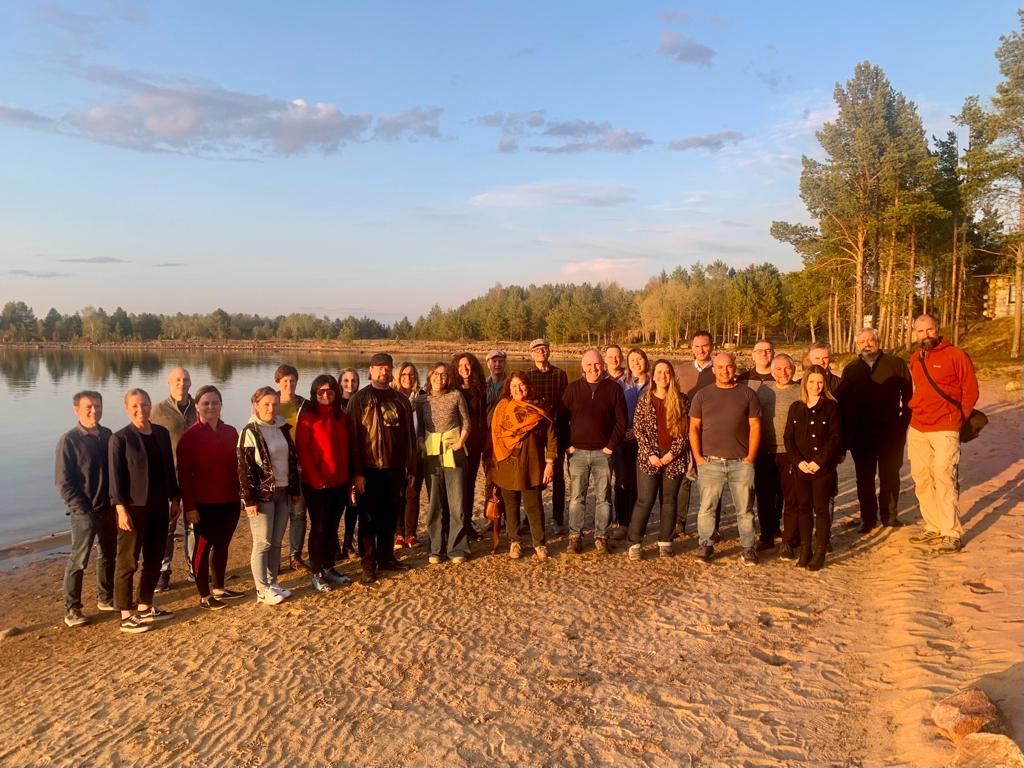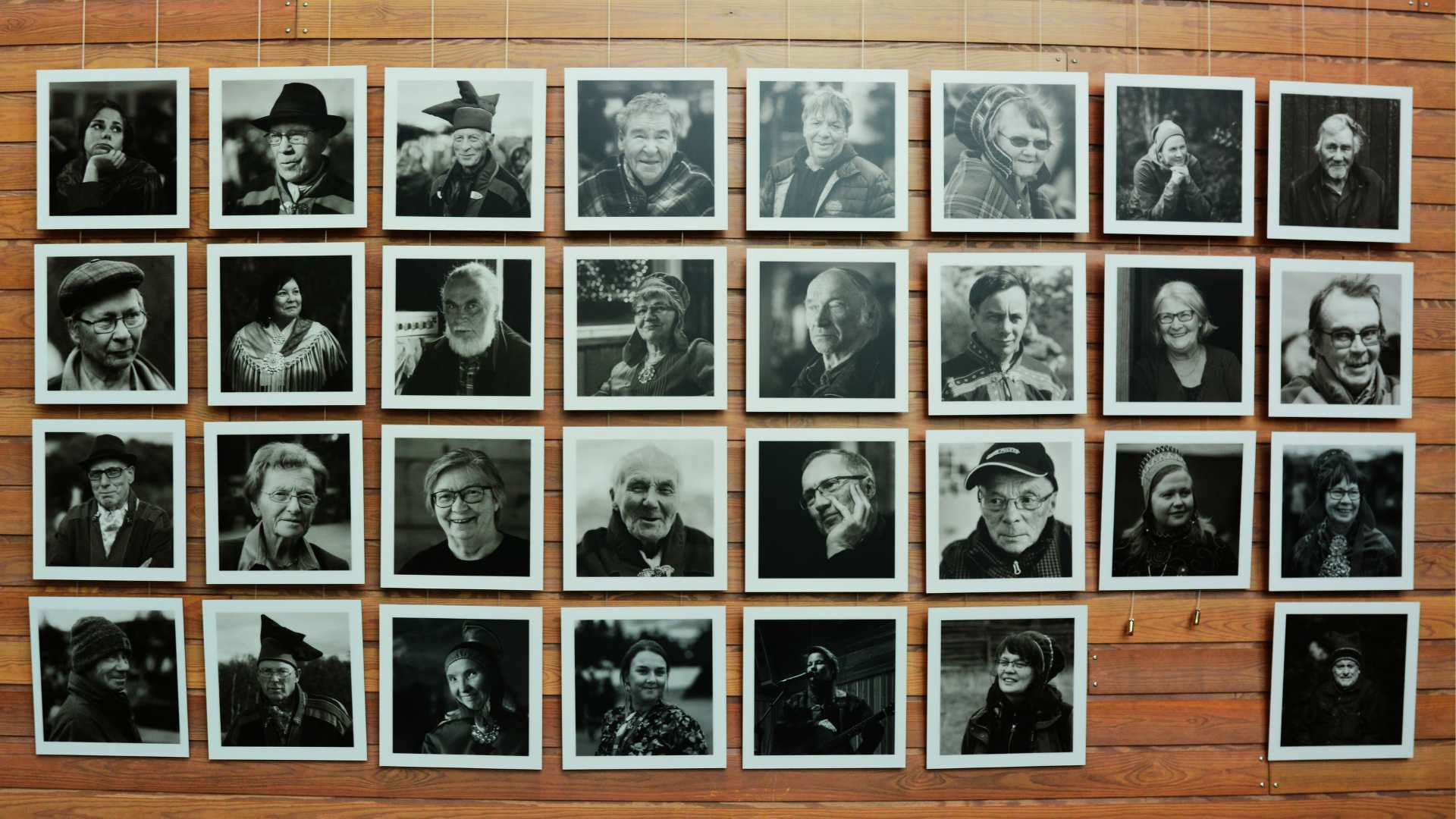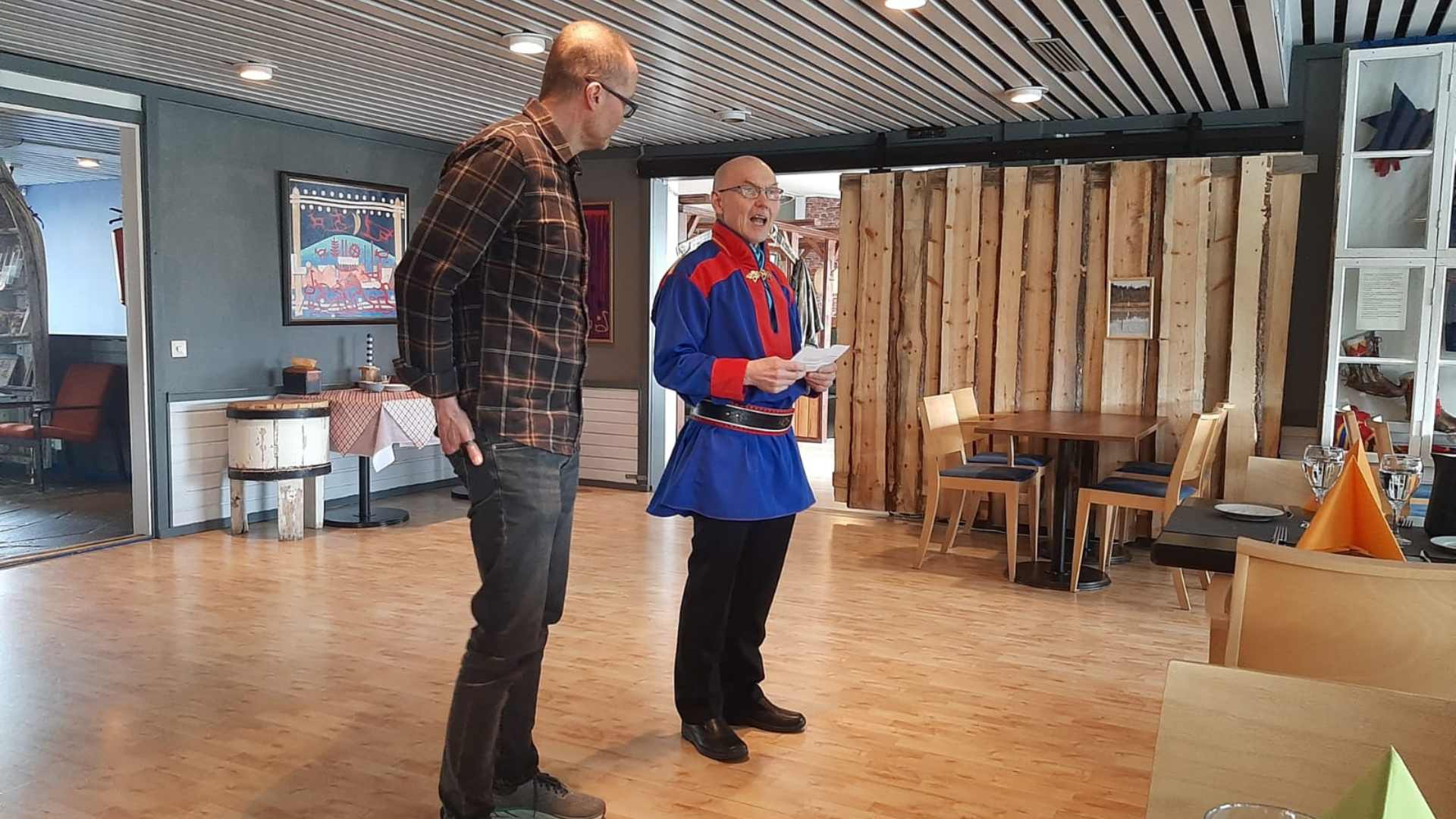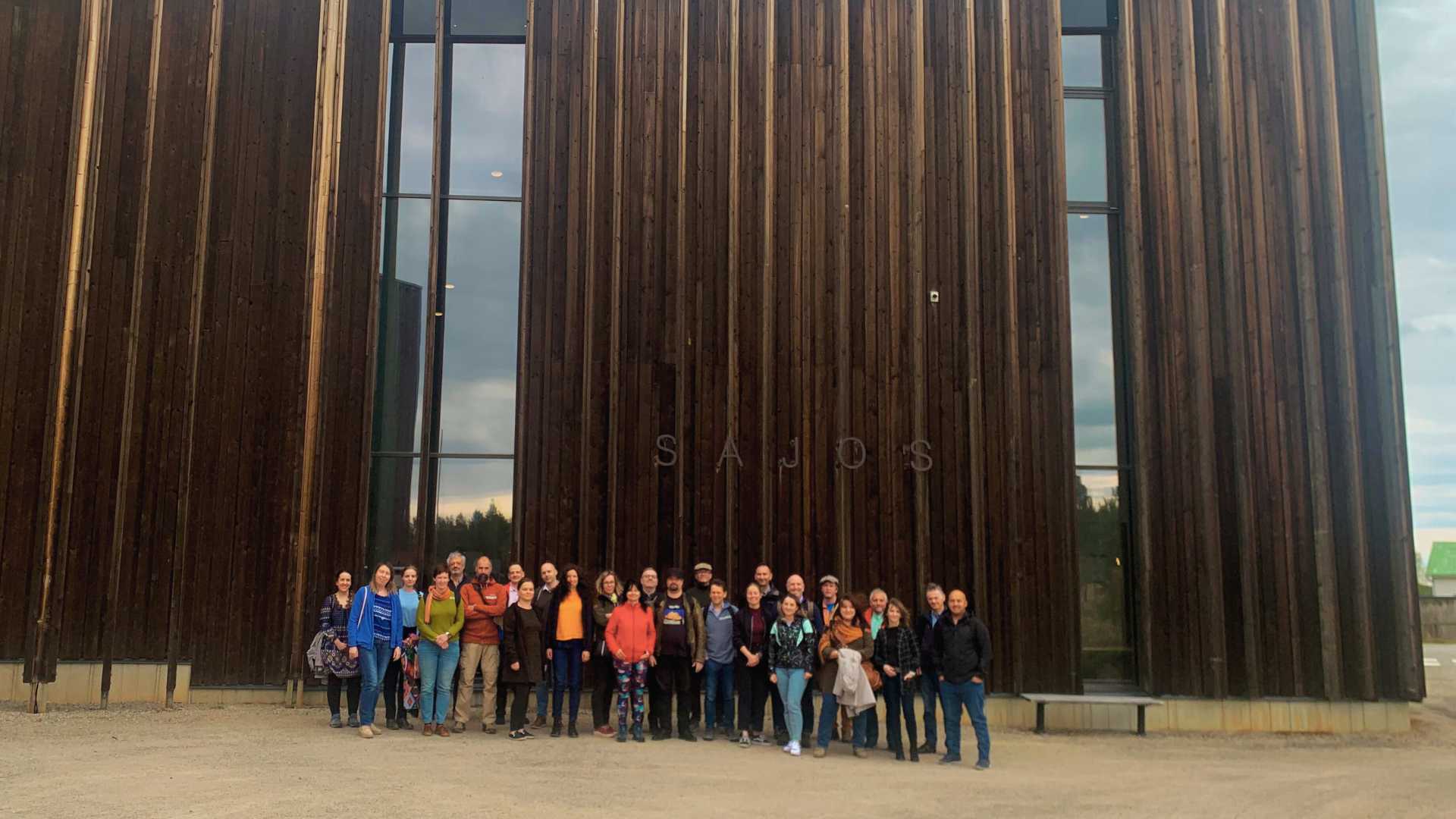By Antonia Egli, Prof Colm O’Gorman, and Prof Theo Lynn (Dublin City University Business School, Irish Institute of Digital Business)
In May 2023, MARGISTAR members travelled to Finland for their first in-person gathering (and, for some, their first polar summer) in the remote Lappish towns of Inari and Utsjoki. Read on for a short overview of this initial COST Action meeting, the experiences we had, and many of our members’ first introductions to indigenous Sámi culture, politics, and current marginalisation challenges.
Our First Steps in Finland
The inaugural in-person gathering of the EU-funded COST Action MARGISTAR, aimed at identifying issues in marginalised mountain regions across Europe, stands as a first testament to the potential that lies in collaboration and shared vision. This meeting gave MARGISTAR’s group of 127 international researchers and experts in mountains, forests, and rural marginalised communities the opportunity to discuss the journey ahead over the COST Action’s next 3.5 years.
28 of MARGISTAR’s members spent three days in Finnish Lapland discussing how the project’s aim of fostering sustainable development and empowerment in often overlooked mountainous areas would take form. Conversations defining target outcomes were led by the Action’s Core Group and Finnish hosts at LUKE, the Natural Resources Institute of Finland. Drawing from diverse disciplines, presentations and discussions surrounding the Action’s Working Groups and their individual tasks unfolded. This gave members the chance to speak in person, find overlaps in research areas and interests, and learn how specific challenges faced by the individual countries and regions MARGISTAR represents may offer grounds for cross-national learning and collective action.

MARGISTAR COST Action Members in Inari, Finland (Credits: Taru Rikkonen, LUKE)
The trip also allowed MARGISTAR members to explore the remote regions of Finnish Lapland, which have historically grappled with isolation and, in particular, political neglect. In the coming months, the economic, environmental, social, and cultural dimensions of marginalised mountain regions are set to be discussed further at events (such as the Working Group 2 meeting in Türkiye this September) and in the course of case studies, literature reviews, and so-called Country Focuses. These monthly Country Focuses are the output of an ongoing effort to highlight the countries represented within MARGISTAR, two of which have been featured since May. You can view our Italy Country Focus here and our Country Focus on Portugal here.
Marginalisation in Finland: MARGISTAR Explores Finnish Sámi Culture
Like many countries, Finland’s marginalised regions are home to communities that face harsher social, geographical, political, and economic challenges in comparison to others. Finnish Lapland experiences marginalisation due to its remote location, harsh climate, sparse population, and limited economic opportunities. Higher unemployment rates and lower access to essential services are only a few negative effects of this and are aggravated by the historical and ongoing social isolation faced by the indigenous Sámi population. These communities have traditionally struggled to preserve their culture and way of life amidst modern societal pressures and still do so today. The indigenous Sámi people of the region grapple with these issues intensely. Socially, the Sámi people strive to preserve their rich cultural heritage and way of life in the face of modernisation and cultural assimilation. Political challenges centre around the recognition of their rights and autonomy as an indigenous community, encompassing issues such as land ownership, resource management, and self-governance.
These regions, including Inari, rely heavily on traditional, nature-based livelihoods, such as salmon fishing and reindeer herding, and seasonal industries, like tourism. While the latter can lead to fluctuations in employment and income, the former are sensitive to changes in the external environment, such as changes in fishing stock and alternative land use in reindeer herding areas. Although efforts have been made to address these challenges through various policies and initiatives, the balance between safeguarding indigenous identity, fostering economic growth, and respecting environmental concerns remains a delicate and ongoing endeavour in Finnish Lapland.
Throughout this first face-to-face meeting in Finnish Lapland, MARGISTAR members were introduced to the resilience of the Sámi people and rural Finnish communities and their culture. By recognising the intrinsic value of Sámi traditions and culture and being welcomed into Sámi spaces of political, economic, and cultural exchange, the COST Action sought to integrate the struggles the Sámi and rural Finnish communities face into the conversations that were held on site and will continue over the upcoming months.
MARGISTAR Action members in front of Sámi Parliament it Inari, Finland (Credits: Antonia Egli, DCU)
As the oldest and only indigenous people of the European Union, the Sámi people maintain their language, culture, and traditions on a daily basis. In Finland, Sámi culture continues to thrive largely thanks to the Sámi Cultural Centre and Parliament Sajos. Sámi Parliament is the representative self-governing body of the Sámi people in Finland, which the MARGISTAR consortium was able to visit and even work in.

MARGISTAR consortium working at Sámi Parliament (Credits: Mikko Jokinen, LUKE)
Legislated in 1996, the Sámi Parliament was created to implement the rights guaranteed to the Sámi people as an indigenous group. The Parliament falls under the administrative sector of the Finnish Ministry of Justice and is funded by the state. The body, which is the highest political body of the Sámi people in Finland, consists of twenty-one members and four deputies who are elected every four years by the Sámi community.

Members of the local Sámi community, Sámi Parliament (Credits: Ivan Lakovic, Historical Institute of Univerzitet Crne Gore,Montenegro)
The Sámi population is estimated at about 80,000 people living in Norway, Sweden, Finland and Russia. In Finland, the Sámi home region Sápmi is located in the country’s northernmost municipalities of Inari, Utsjoki, Enontekiö, and northern Sodankylä. Sámi who live in Finland speak three languages: North Sámi, Inari Sámi, and Skolt Sámi, which vary enough for speakers to understand each other only with difficulty.
An important part of MARGISTAR’s visit to Inari and Utsjoki was to meet with representatives of the Sámi community. Both a guided tour of the Sámi Museum and Nature Centre Siida in Inari and testimonies of local Sámi spokespeople to the MARGISTAR consortium in Utsjoki provided insights into the intricate challenges faced by these communities and their livelihoods, and how collaborative efforts could possibly bring about positive change.
Historically, Sámi culture and livelihoods are centred around reindeer herding, fishing, and gathering. The Teno River, also known as the Tana River, holds immense cultural significance for the Sámi, as it has provided a vital source of salmon for their sustenance and spiritual practices. The Sámi also hold traditional ecological knowledge of the salmon, which could also be used in environmental management decisions. One cannot overestimate the importance of salmon fishing to the Sámi. It is not only a source of food and the basis of both the local fishing and tourism industry, but the activity of fishing is an important part of the intergenerational knowledge transfer necessary for the ongoing sustainability of Sámi culture. However, one major emerging challenge for the Teno River is the invasive pink salmon species, which disrupts traditional Sámi fishing practices of and impacts the delicate ecological balance of the river ecosystem. It was enlightening to hear directly from Sámi rightsholders, both from Finland and Norway, on our visit and the actions that they are taking to mitigate the adverse impacts of this issue.

Local Sámi Spokesman and MARGISTAR Action Chair Juha Hiedanpää in Utsjoki, Finland (Credits: Mikko Jokinen, LUKE)
The MARGISTAR team would like to thank our hosts Prof Juha Hiedanpää (LUKE), Dr Mikko Jokinen (LUKE), Dr Simo Sarkki (University of Oulu), and Taru Rikkonen (LUKE) for their time and immense effort in organising an educational, productive, and valuable team-building experience.




